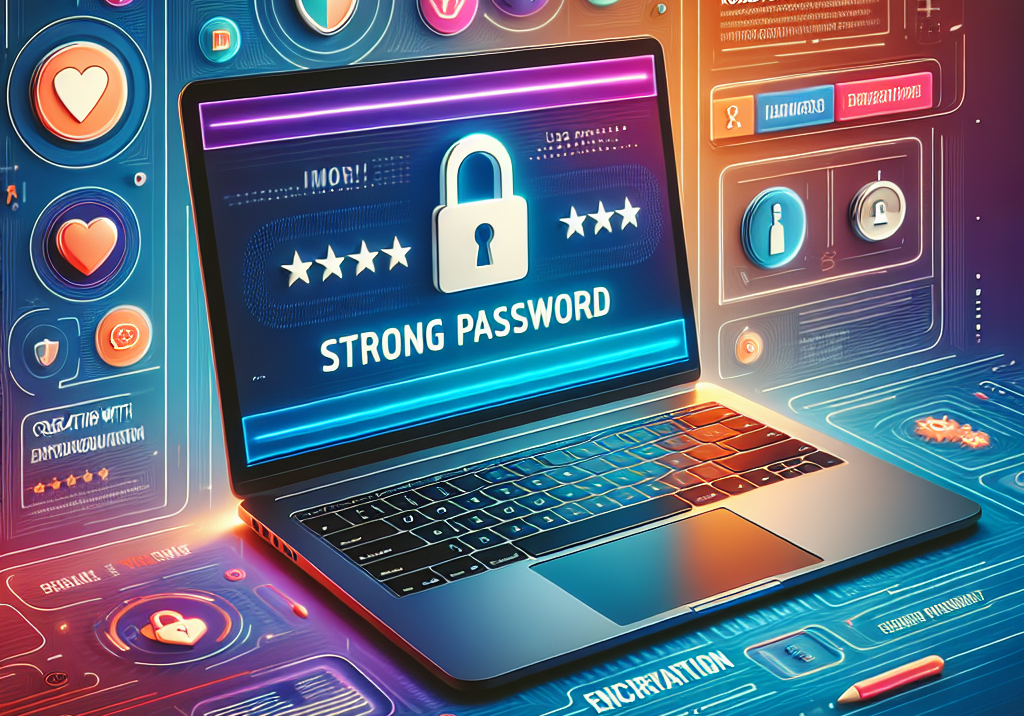How to Choose a Strong Password

Creating a strong password is your first line of defense in protecting personal data, financial information, and digital identity. Cyberattacks and data breaches are on the rise, and weak or reused passwords provide an easy entry point for attackers. This article explores actionable strategies for crafting robust passwords that balance security with memorability.
Understanding Password Strength
Passwords are evaluated based on three core attributes: length, complexity, and unpredictability.
- Length: Longer passwords exponentially increase the number of possible combinations an attacker must try.
- Complexity: Incorporating uppercase letters, lowercase letters, digits, and symbols widens the pool of characters.
- Unpredictability: Avoiding common words, phrases, or patterns prevents attackers from leveraging dictionary attacks and known password lists.
Best Practices for Strong Passwords
- Use Passphrases Over Single Words A passphrase—such as “correct horse battery staple”—combines multiple random words into a longer string that’s easy to remember yet hard to crack.
- Combine Diverse Character Types Incorporate at least three of the following: uppercase letters, lowercase letters, numbers, and special symbols (e.g., !, @, #, $).
- Avoid Predictable Information Do not use birthdays, names, pet names, or sequential digits like “123456.”
- Make Each Password Unique Never reuse the same password across multiple accounts. A breach on one site should not compromise others.
- Enable Two-Factor Authentication (2FA) Whenever possible, add an extra verification step (SMS code, authentication app) to supplement your password.
Common Mistakes to Avoid
- Personal Information Passwords containing your name, username, or easily discovered details are vulnerable to social engineering.
- Simple Patterns Avoid sequences (e.g., “abcdef”) and keyboard patterns (e.g., “qwerty”).
- Reusing Passwords A single reused password across sites multiplies the fallout of a single breach.
- Overly Short Passwords Even with complexity, passwords under 12 characters can be brute-forced with modern hardware.
Crafting Memorable Yet Secure Passwords
Use mnemonic devices or first-letter acronyms to build complex passwords you can recall:
- Take a sentence you know well.
- Use the first letter of each word.
- Substitute numbers and symbols for letters or common syllables.
Example: Sentence: “My favorite vacation was in Italy in 2019!” Passphrase: MfvwiiI!2019
This approach yields a password that’s both unique and easier to remember than a random jumble.
Comparing Password Examples
| Category | Example | Characteristics |
|---|---|---|
| Weak | password123 | Too short, common word plus sequence |
| Moderate | Pa$$w0rd! | Uses symbols and numbers but predictable pattern |
| Strong | MfvwiiI!2019 | Long passphrase, mixes character types, unique |
| Strongest | TractorBlue$5?409Lime | Multi-word, random order, symbols, digits, length |
Leveraging Password Managers
Password managers solve the memory-versus-security dilemma by generating and storing long, random passwords. Key benefits include:
- Automatic random password generation of high entropy.
- Secure vault accessible with a single strong master password.
- Cross-device synchronization and autofill to prevent phishing.
Choose a reputable manager, enable 2FA, and regularly back up your encrypted vault.
Advanced Techniques: Diceware and Entropy
For maximum randomness, consider the Diceware method:
- Roll five six-sided dice to generate a number between 11111 and 66666.
- Map that number to a word in the Diceware wordlist.
- Repeat for 5–7 words to form a passphrase.
Estimating entropy helps you understand password robustness: each random character adds roughly 6 bits of entropy; each word from a 7,776-word Diceware list adds 12.9 bits.
Updating and Managing Passwords
Regularly review and update critical account passwords, especially after a known breach. Strategies include:
- Schedule quarterly or biannual password reviews.
- Use your password manager’s health audit feature to identify weak or reused credentials.
- Immediately change passwords for high-value accounts (banking, email, healthcare) after any security alert.
Educating Yourself and Others
Strong password habits benefit everyone in your circle. Share these guidelines with family, friends, and colleagues. Advocate for organizations you belong to that implement mandatory password complexity and 2FA. Cybersecurity is a collective effort; small steps contribute to larger resilience.
Conclusion
A robust password strategy combines length, complexity, unpredictability, and unique usage across accounts. Leveraging passphrases, password managers, and two-factor authentication dramatically enhances your security posture. By avoiding common mistakes and adopting systematic password hygiene, you transform passwords from potential liabilities into strong defensive tools.






